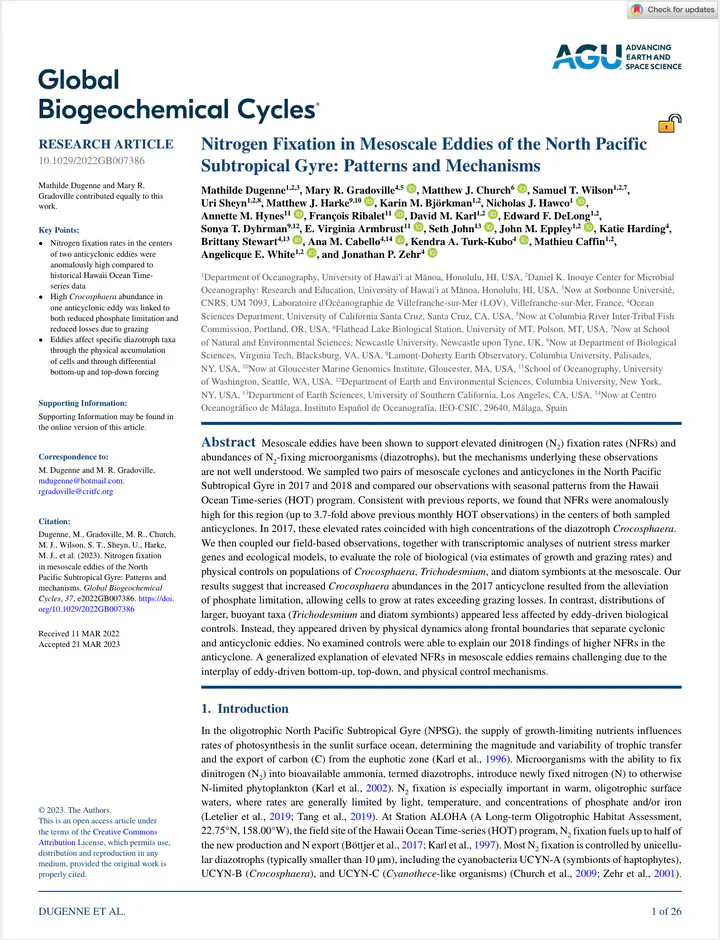Nitrogen fixation in mesoscale eddies of the North Pacific Subtropical Gyre: patterns and mechanisms

Abstract
Mesoscale eddies have been shown to support elevated dinitrogen (N2) fixation rates (NFRs) and abundances of N2-fixing microorganisms (diazotrophs), but the mechanisms underlying these observations are not well understood. We sampled two pairs of mesoscale cyclones and anticyclones in the North Pacific Subtropical Gyre in 2017 and 2018 and compared our observations with seasonal patterns from the Hawaii Ocean Time-series (HOT) program. Consistent with previous reports, we found that NFRs were anomalously high for this region (up to 3.7-fold above previous monthly HOT observations) in the centers of both sampled anticyclones. In 2017, these elevated rates coincided with high concentrations of the diazotroph Crocosphaera. We then coupled our field-based observations, together with transcriptomic analyses of nutrient stress marker genes and ecological models, to evaluate the role of biological (via estimates of growth and grazing rates) and physical controls on populations of Crocosphaera, Trichodesmium, and diatom symbionts at the mesoscale. Our results suggest that increased Crocosphaera abundances in the 2017 anticyclone resulted from the alleviation of phosphate limitation, allowing cells to grow at rates exceeding grazing losses. In contrast, distributions of larger, buoyant taxa (Trichodesmium and diatom symbionts) appeared less affected by eddy-driven biological controls. Instead, they appeared driven by physical dynamics along frontal boundaries that separate cyclonic and anticyclonic eddies. No examined controls were able to explain our 2018 findings of higher NFRs in the anticyclone. A generalized explanation of elevated NFRs in mesoscale eddies remains challenging due to the interplay of eddy-driven bottom-up, top-down, and physical control mechanisms.